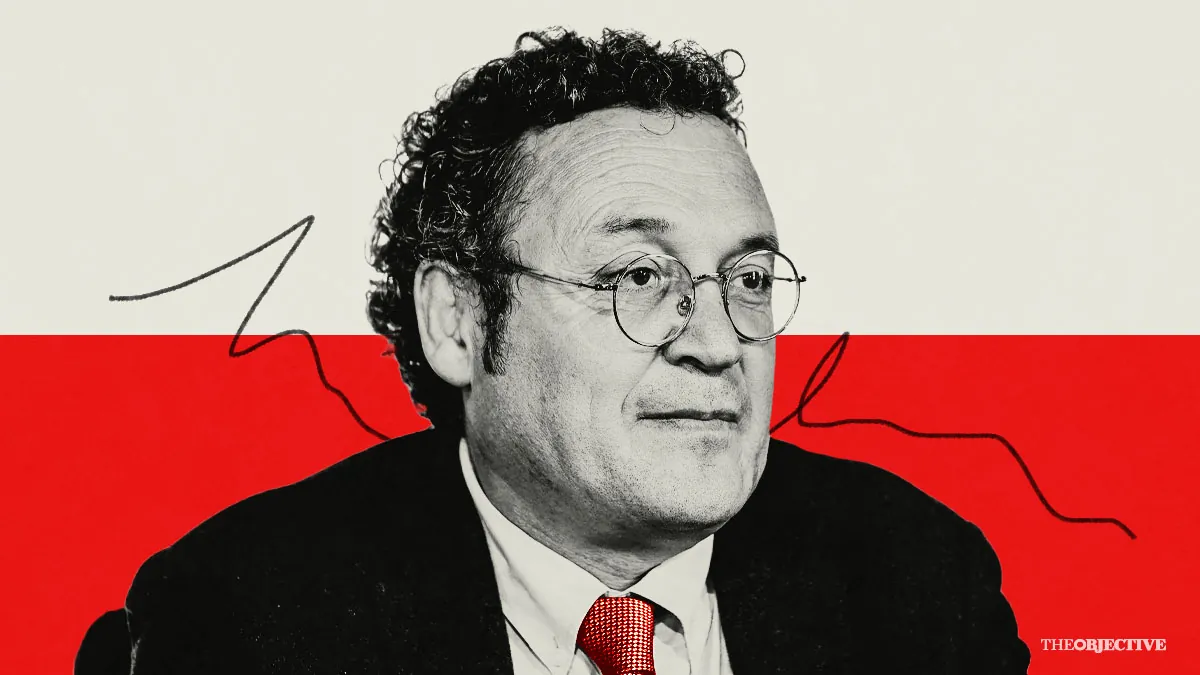Historic ruling: Spain’s Attorney General found guilty of abuse of power by the Supreme Court
Álvaro García Ortiz must pay a 7,300-euro fine and compensate Isabel Díaz Ayuso’s boyfriend with 10,000 euros

Spains Attorney General, Álvaro García Ortiz | Photo illustration by Alejandra Svriz.
Spain’s Supreme Court has sentenced the country’s Attorney General, Álvaro García Ortiz —the highest-ranking public prosecutor in Spain— to two years of disqualification from office for disclosure of secrets. The Chamber presided over by Justice Andrés Martínez Arrieta has acquitted him of the remaining offences. The head of the Public Prosecutor’s Office must also pay a fine of 7,300 euros, calculated at a daily rate of 20 euros, as well as the procedural costs, including those of the private prosecution. As civil liability, he must compensate Alberto González Amador, the boyfriend of the Madrid regional president, Isabel Díaz Ayuso, with 10,000 euros for moral damages. The ruling was issued by a majority of the court’s members, although it was not unanimous.
The decision, still pending full drafting, will take effect once it is formally notified. It will include two dissenting opinions written by judges Ana Ferrer and Susana Polo, who disagree with the judgment, which entails a change in the authorship of the opinion now assumed by Martínez Arrieta. Sources from the Supreme Court told THE OBJECTIVE that the items seized during the searches carried out will either be returned to their owners or destroyed. García Ortiz’s defence has the option of challenging the ruling through an incident of nullity, a rarely successful mechanism but one that is required before seeking constitutional protection from Spain’s Constitutional Court.
The Spanish Government reacted immediately. While waiting to examine the full judgment, it expressed full respect for the ruling, though noting that it does not agree with it. Government sources explained that, in the coming days, the process of appointing a new Attorney General will begin —«a person of the highest professional standing in the field of law». Despite the conviction, the Government expressed its recognition of García Ortiz’s work «in defence of the law and the truth during his term at the head of the Public Prosecutor’s Office».
The email from Ayuso’s boyfriend
García Ortiz stood trial in early November, accused of leaking emails exchanged between the Prosecutor’s Office and the lawyer of Ayuso’s boyfriend in order to reach a plea agreement. In the email, González Amador stated he was willing to admit that he had defrauded 350,000 euros from Spain’s Tax Agency through a scheme of false invoices to avoid a prison sentence. Indeed, on 22 September, the investigating judge ordered him to stand trial, accused of two counts of tax fraud, falsification of commercial documents, accounting offences and membership of a criminal organisation.
The circulation of that email, dated 2 February of last year, took place on 13 March 2024, only a few hours after Spanish newspaper El Mundo published a report claiming that it had been the Prosecutor’s Office that had offered the plea deal to González Amador. That version —spread by Ayuso’s entourage— prompted García Ortiz to consider it necessary to counter it with a press release the following day «to win the narrative».
State Attorney José Ignacio Ocio, who represents García Ortiz, stated during the trial that, beyond the claims made by Ayuso’s boyfriend, «no documentary evidence» has been presented showing that the Attorney General was the person who leaked González Amador’s confidential information. In his view, reports from the Civil Guard’s Central Operative Unit (UCO) also failed to contribute. He further argued that the officers exceeded the scope of the judge’s order during the search of the defendant’s office on 30 October of last year, and therefore asked for that procedure to be annulled.
This position was supported by the Prosecutor’s Office. The Deputy Attorney of the Supreme Court, María Ángeles Sánchez Conde, disagreed with the UCO report because it «cannot constitute expert evidence» nor does «any proof» arise from it. During the trial, the officers attributed to García Ortiz «full control at every level» of the leak. During the investigation, after analysing the Attorney General’s devices, they found that there were «zero messages» and that they had been deleted on the very day the Supreme Court charged him with the offence of disclosure of secrets. One week later, he changed his mobile phone, citing security reasons.
«Authority to delete messages»
Forty witnesses testified during the trial of García Ortiz, held between 3 and 13 November, including González Amador himself, who accused the Attorney General of having publicly destroyed him: «I became the self-confessed criminal». Another witness was Ayuso’s Chief of Staff, who accused the Prosecutor’s Office of sabotaging any agreement with the businessman, whom he said he had helped out of friendship rather than as part of his political responsibilities. Several prosecutors also testified, including the Chief Inspector, who stated that the defendant had «authority to delete messages».
One of the most significant testimonies was that of Madrid’s Chief Prosecutor, Almudena Lastra, who identified García Ortiz as the source of the leak. She told the court that on the morning of 14 March last year, when the content of Ayuso’s boyfriend’s emails had already been made public, the Attorney General called her while she was in the car. «I did not even greet him. I asked, ‘Did you leak the emails?’ Then he told me that this did not matter now, but it did matter to me. That remained engraved in my soul». Lastra said she did not agree with the press release because the information was already public.
The hearing also featured statements from the former Secretary of State for Communication, Francesc Vallés; former senior Moncloa official Pilar Sánchez Acera; and the former leader of Spain’s Socialist Party (PSOE) in Madrid, Juan Lobato. On 14 March last year, Lobato received a message from Sánchez Acera suggesting he use the email in which Ayuso’s boyfriend admitted two tax offences. Lobato, now a senator, doubted the «lawful origin» of the document and was reluctant to present it in the Madrid Assembly. Sánchez Acera replied that it would be published. The current number two of the Madrid socialists denied having received «the screenshot» from the Prosecutor’s Office but does not recall the identity of the journalist who provided it.
Around a dozen journalists also testified during the trial; they refused to reveal their sources and cleared García Ortiz of responsibility. Three of them acknowledged that they had obtained the controversial email of Ayuso’s boyfriend before the Attorney General did. José Precedo, deputy director of elDiario.es, said it had reached him a week earlier and described the defendant as «innocent». González Amador’s lawyer, Gabriel Rodríguez Ramos, expressed surprise that he had not published the information sooner, to which the witness replied that he had delayed publication out of journalistic ethics.

